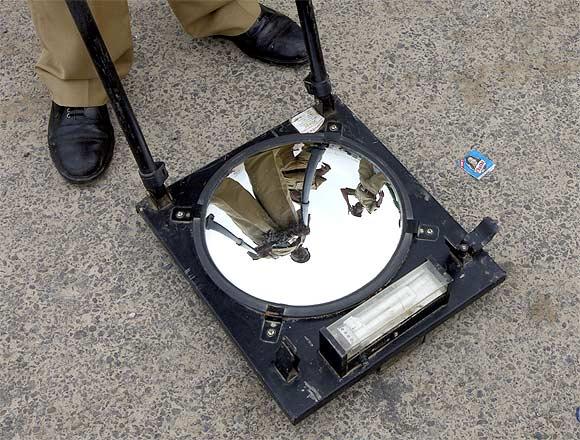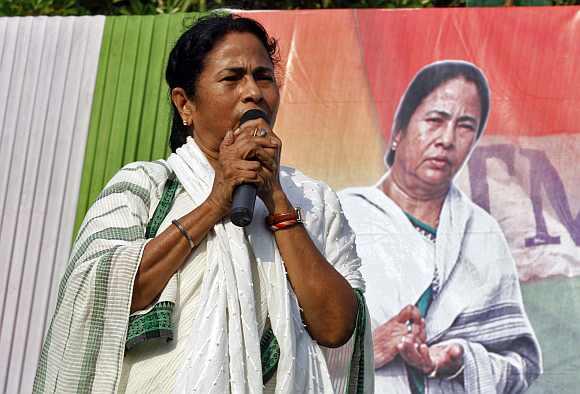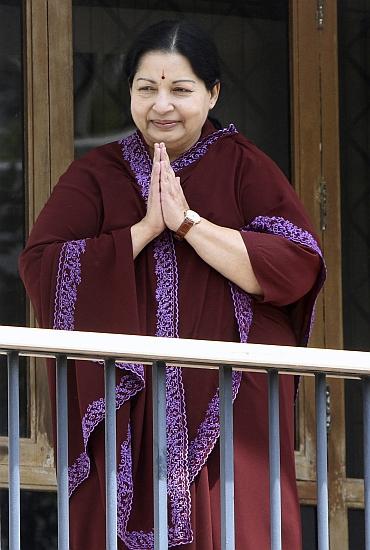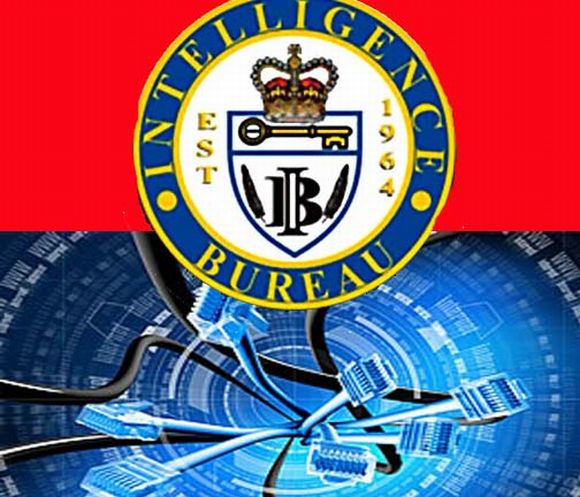
As many as seven chief ministers have joined a chorus of disapproval against the National Counter-Terrorism Centre, which the Union government notified earlier this month. The United Progressive Alliance has argued that the action flows from powers already in the existing unlawful activities statute.
The chief ministers disagree, saying that the powers of interrogation, arrest and seizure sought to be given to the Centre impinge on the states' role in the area of law and order -- and thus run contrary to the federal provisions of the Constitution.
This derailment is, above all, a political failure for the UPA.
National security in an age of cross-border terrorism requires close co-ordination between jurisdictions and investigative agencies. For this, irrespective of what is or is not written into law, the co-operation of the state-level leadership is essential.
Click on NEXT for more...
Click here for Rediff Realtime News

The UPA must go the extra mile to explain itself to the states and bring the dissenting chief ministers on board.
Their tough stand is a reflection of the checks and balances wisely built into the federal structure by the framers of the Constitution, and it should be respected as such. Without such checks, the natural tendency of bureaucracies -- especially security bureaucracies -- to acquire greater powers would be uncontrolled.
The move is being led by West Bengal Chief Minister Mamata Banerjee, who has been at loggerheads with the Centre over several issues, but whose main grouse is widely seen to be her inability to get a special financial package for her resource-denuded state government.
Click on NEXT for more...
Click here for Rediff Realtime News

Another opponent of the Centre, Tamil Nadu Chief Minister J Jayalalithaa, has spoken out against several initiatives, including the anti-communal violence Bill, that she believes bypass the states' constitutional right to oversee law and order.
Other chief ministers who have signed on to this dissent include Bihar's, Nitish Kumar, and Gujarat's, Narendra Modi. Modi and Kumar are nominally allies, as part of the Bharatiya Janata Party-led National Democratic Alliance, but they are not known for their points of agreement.
When opposition to a proposal is so broad-based, it should be seen as both a political and a drafting failure for the UPA and the home ministry.
Click on NEXT for more...
Click here for Rediff Realtime News

However, there is a warning here for the BJP too. Many initiatives that the principal Opposition party would have piloted had it been in government are being opposed strenuously by its state governments and parliamentary party -- fuel deregulation, the goods and services tax, and now the NCTC.
It is difficult to believe that had the NDA been in power, it would have allowed federal niceties to come in the way of a muscular NCTC-type organisation. After all, it is usually civil society organisations, which the BJP and its ideological allies tend to frown upon, that take the lead in arguing against extending powers of interrogation and arrest.
India's voters might well view the BJP's actions as political opportunism rather than responsible opposition. While the issues of constitutional propriety that the chief ministers have raised should not be ignored, it appears that straightforward political manoeuvring -- ahead of the parliamentary elections slated for 2014 -- is playing a part in this confrontation too.